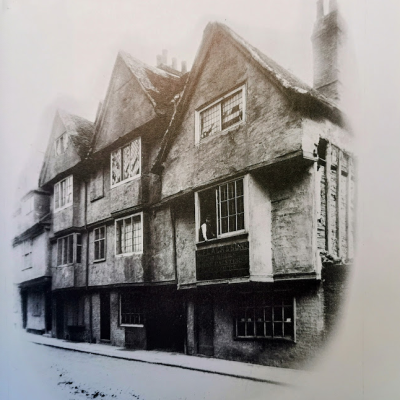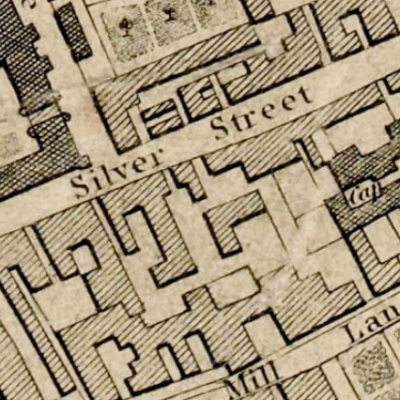Search by topic
- archaeology
- Building of Local Interest
- charity
- church
- crime
- dressmaker
- fire
- Great Eastern Railway
- Listed building
- Mapping Relief
- medieval
- oral history
- poverty
- Public House
- Rattee & Kett
- Religious House
- Roman
- scholar
- school
- Then and Now
- tudor
- women
- work
- world war one
- world war two
Search by text
Old Granary, Silver Street
History of the Old Granary
In August 1895, although not ready for occupation, was put into the hand of Arthur Rutter, estate agent, to let at a rent of £90 by Professor Darwin of Newnham Grange.
J D Duff, lecturer in Classics, married Miss Laura Lenox-Conyngham, in 1895 and the Darwins suggested, successfully, that the Duffs should take the Old Granary in 1896.
After the Duffs, in 1898, came Arthur Hugh Clough until 1903.
The next tenant was Arthur Christopher Benson, a writer, who had retired to Cambridge in 1902. However, at the last minute it was the Dimsdales, Marcus Dimsdale and his new wife Elspeth Philipp who moved into the old Granary for two years until he moved to Magdalene in October 1904.
1904 After the Bensons, the property was let to the Bertrand Russells.
1906 Next was Lady Corbett, widow of Admiral Sir John Corbett KGB. She died in 1918 but her son William kep on the flat although a Geoffrey Holloway appears as tenant in 1920 and 1921. William Corbett stopped living there in 1924 but the Corbett family continued the lease until 1926 or 1927.
1927 – 1938 Louis Colville Grey Clarke, Curator of the Museum of Archaeology and Ethnology. In 1938 he moved to Leckhampton House.
1938 Henry Morris, Chief Education Officer. He campaigned for the creation of Village Colleges.
1944 the Darwin family gave notice but Morris disputed and was allowed to stay until 1946. He then moved to 15 Fitzwilliam Street.
1946 – 1957 Gwen Raverat, author of Period Piece.She moved here from Harlton Old Rectory. She made the sitting room into her studio. In 1947 she came up with the idea of a book of family incidents and this was the origin of Period Piece.
1957 Gwen Raverat died and the Granary was let to new Hall to house five of its students and a Fellow until such time as the college could move out the Hermitage into its permanent home on Huntingdon Road.
1965 Darwin College took possession and made it into rooms for seven of its graduate students.
(See A House By The River, M E Keynes, 1976)
Contribute
Do you have any information about the people or places in this article? If so, then please let us know using the Contact page or by emailing capturingcambridge@
License
This work is licensed under CC BY-NC-SA 4.0







